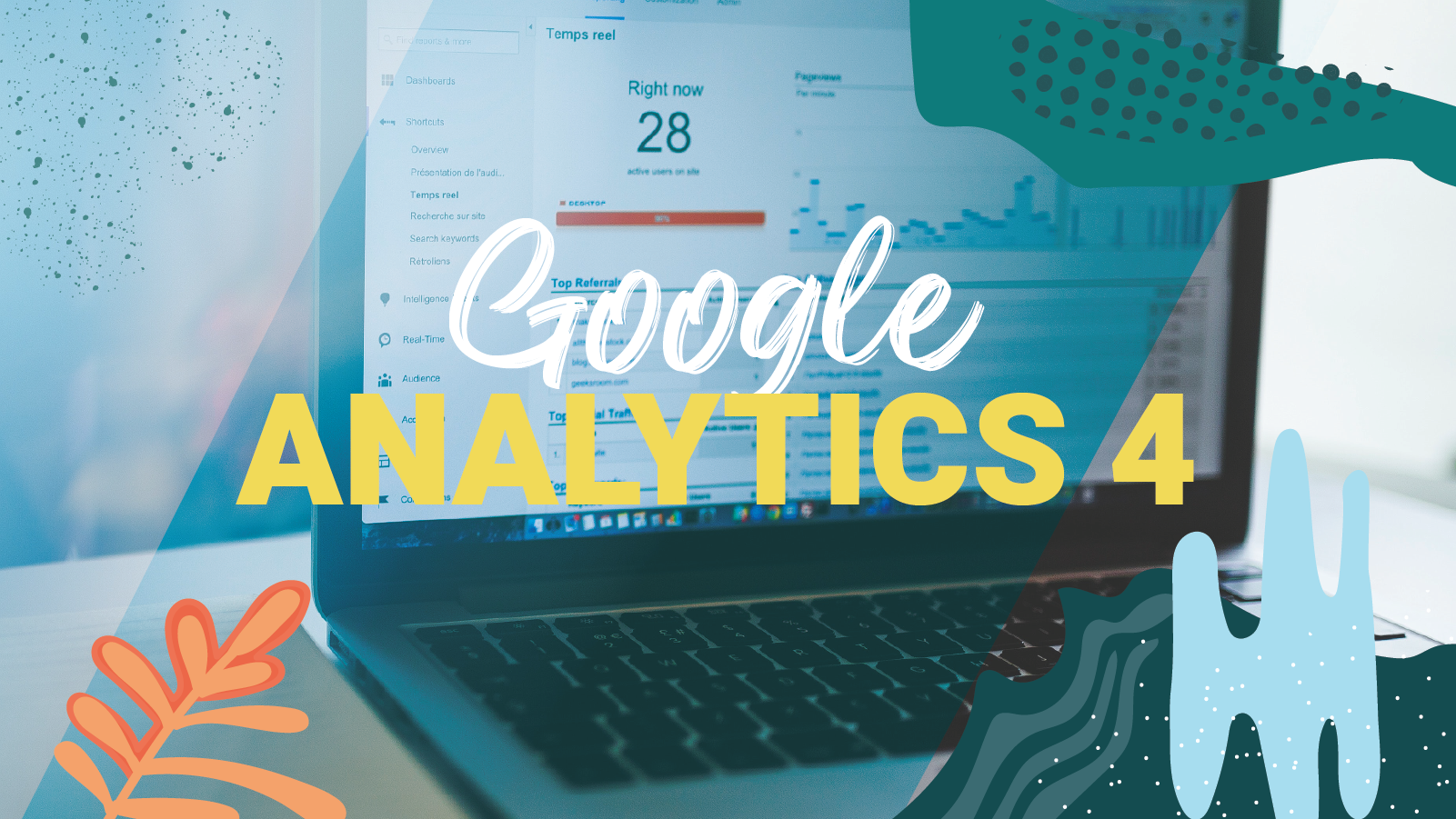Hey there! It’s the 8THIRTYFOUR nerds. Kim let us out of the basement to talk about digital stuff, and boy are we gonna. We have opinions and a lot of them.
By now, if you’ve spent any time talking about data, you’ve heard about Google Analytics. If you’ve been particularly interested in it, you probably went through the trouble of taking the Google Analytics course and hour-long certification. Note: It’s time-consuming but worth it.
At least until now.
Because Google’s decided it’s time to throw everything you know out the window. Why? Because starting July 2023, we’ll be saying goodbye to Google Analytics as we know it…forever.
That’s right, Universal Analytics is dying, and Google Analytics 4 is our new king.
Explain in Regular People Terms.
Okay, maybe we got a little carried away, but when we explain why, you’ll totally understand where we’re coming from.
Universal Analytics (or UA, because typing full words takes too long) has been the go-to for website data since 2012. Sure, there have been other platforms vying for the top spot, but none of them are quite as synonymous with analytics as, well, UA (possibly because it’s in the title).
Still, UA took that top spot for a reason. It’s always had a bit of a learning curve, sure, but it provides in-depth looks at a vast array of topics, like top pages, user locations, time on specific pages, conversion funnels, and a whole lot more. We’d list the rest, but we’d be here for, well, a really, really long time. And while DeLorean may be in the process of making a new time machine, we’re not going to take up your time with a bunch of lists until we’re sure we can get it back.
Long story short? UA’s great. We’ve all figured out its quirks and made it work for us. So the natural progression for Google would be to take that concept, expand upon its abilities, and roll out something with a friendlier user interface and less of a learning curve. Right?
Wrong.
Imagine UA, but way, way worse.
Take away all of the granular information UA provides and replace it with a search bar that understands sentences, and what do you have? Google Analytics 4 (or GA4 from here on out).
When it rolled out initially, there was a lot of buzz in the nerd community. GA4 has a much sleeker interface, and it’s great for beginners. If you want to know something, all you have to do is type it into the search bar, just like regular Google. Want to know how many people were on your site in February of 2021? You just have to type, “How many users visited the site in February 2021?” And then boom. Info beamed right to your eyeballs.
The chat/search option sounds great, but the problem is that’s really the bulk of GA4’s abilities. As we said, people were excited when it first rolled out as an optional add-on for UA, but it was really obvious early on that GA4 just lacked…a lot. Like it was a prototype that got released a little too soon. The data was great, but the depth of data…well. Let’s just say it’s nowhere near what UA offers.
So, okay, whatever. We all just kind of thought of it as a novelty and decided, “Let’s check in on it in a few years to see how it’s grown.”
And then Google dropped a date.
Say it ain’t so.
To quote Russell Ketchum (no relation to Ash), Google’s Director of Product Management:
So now is the time to make Google Analytics 4 your cross-platform Analytics solution.
We will begin sunsetting Universal Analytics — the previous generation of Analytics — next year. All standard Universal Analytics properties will stop processing new hits on July 1, 2023.
Imagine the collective gasp of digital data analysts across the globe. But wait. It gets worse.
All standard Universal Analytics properties will stop processing new hits on July 1, 2023, and 360 Universal Analytics properties will stop processing new hits on October 1, 2023. After that, you’ll be able to access your previously processed data in Universal Analytics for at least six months.
To translate from nerd speak: After July 1, 2023, UA accounts will stop working. Then, sometime after January 2024, all historical data from UA will be gone. Poof. Inaccessible. And in its place? Only the historical data that GA4 has gathered, starting whenever you installed it.
What do we do?
First off, don’t panic. Instead, if you don’t have GA4 installed yet, do that. Right now. Like, seriously, open a new tab (but keep this one open on the side) and go do that. Then come right back here.
Okay. Done? Good. The reason we’re so adamant about that is GA4 and UA don’t play nice. That means GA4 needs to collect its own data…and if you wait much longer to set it up, you won’t have a year’s worth of data when UA goes down for good.
It’s not ALL bad.
We’ve been a little dramatic here, but it’s because we’re really, really passionate about UA (maybe too passionate). Google’s reasons for getting rid of the old version essentially boil down to a shift in user behavior.
- UA was built for desktop experiences (even though it does record other platforms), while GA4 is designed specifically for cross-platform experiences.
- UA uses cookies, which means when someone clears their history, you lose tracking info. GA4 has multiple methods of tracking.
- UA allows you to track events, but they aren’t the key focus. GA4 is designed to be event-based from the get-go.
- And, since Google’s portfolio has expanded just a bit since UA’s 2012 birth, GA4 is made to integrate better with other platforms, like Google Ads.
Is it a perfect replacement? No. Will we all have to relearn how to use Analytics? Yes. Will life go on? Absolutely. You’ll still be able to reach key insights about your website performance and user activity. You’ll just need to do it a little differently than before.
We suggest using this next year to get acquainted with GA4 and wean yourself off of UA. Then, before the end of 2023 rolls around, export any data from UA that you think you’ll need to reference in the future.
And if on July 1, 2023, you hear a lone trumpet playing taps in the distance, it’s just us giving UA the sendoff it deserves.









